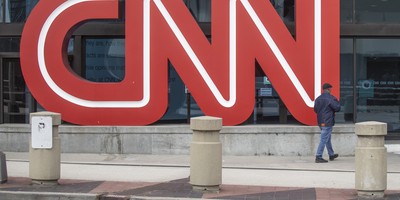Advertisement
Reagan's debate quip, "There you go again," reminded voters of Carter's chronic crabbiness. Even more devastating was Reagan's final, direct question to American voters: "Are you better off than you were four years ago?" No one, it seemed, could muster a "Yes!"
Yet there was more to the 1980 campaign than the final game-changing debate rhetoric -- and some of the details are relevant to 2012.
Carter conceded that he could not run on his economic record -- not with a high "misery index' driven by high inflation, high interest rates, high gas prices and high unemployment. The lengthy Iranian hostage crisis finally began to highlight rather than mask Carter's anemic domestic leadership. Without a record to defend, Carter instead pounded Reagan as too ill-informed and too dangerous to be president.
The negative campaigning had not only worked but also seemed to get under Reagan's skin. He kept going off topic while committing serial gaffes: He claimed that California had eliminated its smog; that trees polluted as much as cars, that Alaska had more known oil than Saudi Arabia, and that new evidence cast doubt upon Darwin's theory of evolution. Reagan got clumsily bogged down in distracting controversies about everything from Taiwan and the Vietnam War to the Ku Klux Klan and the stealth bomber program.
Recommended
Advertisement
Reagan fumbled facts and numbers constantly, as the nitpicking Carter blasted him for implausibly promising lower taxes, balanced budgets and vastly higher defense spending all at once. Throughout late summer, Reagan could not tap widespread voter dissatisfaction with Carter's disastrous economic and foreign policy and his off-putting sanctimoniousness.
Even more unfortunate for Reagan, Republican Congressman John Anderson announced a third-party candidacy. Anderson and a fourth candidate, Libertarian candidate Ed Clark, eventually combined to siphon off more than 6.5 million votes, most of which probably otherwise would have gone to Reagan.
A desperate Reagan also was having difficulty getting Carter out of the Rose Garden to debate. Finally, in late October, Reagan capitulated to Carter's preconditions and met him one time, face to face, without Anderson present.
In other words, until the very last week of the campaign, Reagan had an uphill fight. True, he eventually won a landslide victory in the Electoral College (489 to 49) and beat Carter handily in the popular vote. Yet Reagan only received a 51 percent majority.
What had saved Reagan from a perfect storm of negative factors -- gaffes, additional conservative candidates on the ballot, a single debate and a biased media -- was not just the debate. Voter turnout was relatively low at only 53 percent. If Reagan's conservative base was united and energized, Carter's proved divided and indifferent.
Advertisement
Reagan also won about a dozen (mostly Southern) states by less than 4 percent. Had just a few hundred thousand votes gone the other way in those states, the race might have been far closer than the eventual electoral and popular tallies indicated.
What does 1980 tell us about 2012? Barack Obama, like Carter, can run neither on his dismal four-year stewardship of the economy nor on his collapsing Middle East policy.
Instead, Obama, as Carter did, must stamp his opponent as too inexperienced, too out of touch and too uncaring to be president. While Carter was a dull speaker and Obama, in contrast, possesses teleprompter eloquence, there is no evidence that Obama is any better a debater than was Carter.
Turnout will matter. Challenger Mitt Romney, like Reagan, is said to have the more fired-up base, but the demography of the electorate is far different than it was 30 years ago and now may favor Obama. There are no third-party candidates to skew the result, but the polls seem just as volatile, as Obama, like Carter, usually surges ahead for a while, only to fall back to even in tortoise-and-the-hare style.
Unless there is a war abroad or a financial crisis at home -- such as the financial trauma that helped the struggling Obama surge past John McCain in mid-September 2008 -- the race between an unapologetic liberal and a confessed conservative will go down to the last week.
Advertisement
The winner probably won't be decided by old video clips, gaffes or even campaign money, but by turnout and the October debates -- depending on whether incumbent Obama comes across as a petulant Carter and challenger Romney appears an upbeat Reagan. As in 1980, voters want a better president -- but they first have to be assured he's on the ballot.

























Join the conversation as a VIP Member